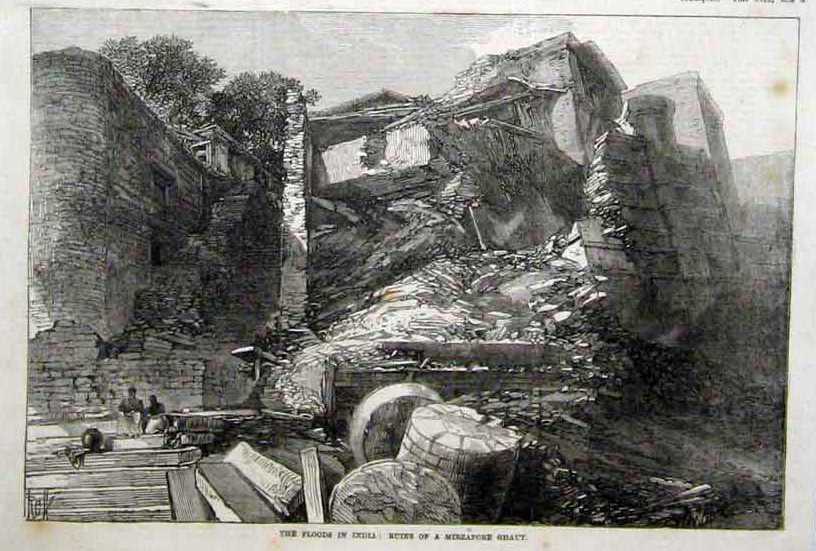FWP:
This verse, with its radically inshaa))iyah structure, permits two negative-question readings. In the first reading, the framework is 'When did I ever do X, that Y didn't happen!'-- that is, that every time I did X, then Y happened. In the second reading, the framework is, 'When did I ever do X? Didn't Y always happen, to prevent me?' So either the speaker did X many times (always with Y as one result), or else he never did X at all (since he was deterred by Y). The key to these two readings is the versatility of the omnicompetent little clause-introducing conjunction kih .
The X is, of course, collecting the 'equipment' for an 'attack, onslaught' of tears; in other words, preparing to create a devastating personal flood, as in {58,2}. The Y is, the lover's doors and walls' falling at his feet. Just as in English, falling at someone's feet [kisii ke paa;Nv par pa;Rnaa] suggests, most probably, deliberate collapse as a gesture of humility and supplication; or, alternatively, simple collapse (reason unspecified; the collapse just happened to take place near the feet).
In this case, the first sense would provide the image of the doors and walls begging the lover not to weep such a flood that they would be destroyed; the second sense would suggest that the lover's mere preparations for a flood of tears were so potent that the doors and walls were knocked down even before the actual flood hit them. (As in {5,4}, where even a passing 'thought' of wildness or madness burns the desert to ashes.) Nobody will be surprised to realize, knowing Ghalib, that both senses of 'falling at the feet' work for both readings of the verse, given above in the translation.
We are left nicely and undecidably
balanced among several sets of possibilities. One set: If the lover's tears destroyed his doors and walls, they did so either physically (his preparations led directly
to actual tears) or by suggestion (the mere preparations caused his house to
collapse). And this destruction happened either repeatedly, as in reading
(a), or never, as in reading (b). Another set: If the lover's tears didn't destroy
his doors and walls, it was because he heeded the humble supplication of the
fearful doors and walls themselves; and this supplication happened either
repeatedly, as in reading (a), or never, as in reading (b).

Nazm:
In the framework of a negative rhetorical question [istifhaam-e inkaarii] he says, 'When did I do that?-- that never happened!' That is, [it never happened] that I collected equipment for weeping, and doors and walls didn't fall at my feet. (54)
== Nazm page 54